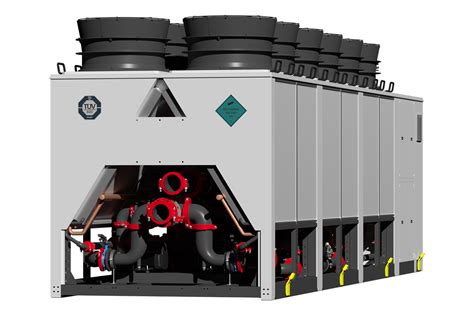The demand for efficient cooling solutions has increased significantly in recent years, driven by the need to reduce energy consumption and mitigate the environmental impact of cooling systems. Chiller technology has emerged as a key player in this space, offering a range of benefits that make it an attractive option for various applications. In this article, we will delve into the world of chiller technology, exploring its working mechanisms, benefits, and applications.
What is a Chiller?
A chiller is a refrigeration machine that is designed to cool fluids, typically water or air, to a temperature that is lower than the ambient temperature. Chillers are used in a wide range of applications, including air conditioning, industrial processes, and commercial refrigeration. They are an essential component of many cooling systems, providing a reliable and efficient means of cooling fluids.

How Does a Chiller Work?
A chiller works by transferring heat from a fluid to a refrigerant, which is then cooled and expanded to produce a cooling effect. The process involves four main stages:
- Compression: The refrigerant is compressed, raising its temperature and pressure.
- Condensation: The hot refrigerant gas is cooled, causing it to condense into a liquid.
- Expansion: The liquid refrigerant passes through an expansion valve, which reduces its pressure and allows it to expand.
- Evaporation: The expanded refrigerant absorbs heat from the fluid being cooled, causing it to evaporate into a gas.
Benefits of Chiller Technology
Chiller technology offers several benefits, including:
- Energy Efficiency: Chillers are designed to provide efficient cooling solutions, reducing energy consumption and costs.
- Reliability: Chillers are built to last, providing a reliable means of cooling fluids over an extended period.
- Flexibility: Chillers can be used in a wide range of applications, from small commercial installations to large industrial processes.
- Environmental Benefits: Chillers can be designed to use environmentally friendly refrigerants, reducing their impact on the environment.
Applications of Chiller Technology
Chiller technology is used in a wide range of applications, including:
- Air Conditioning: Chillers are used in air conditioning systems to provide cooled air for buildings and other spaces.
- Industrial Processes: Chillers are used in industrial processes, such as food processing, pharmaceutical manufacturing, and chemical production.
- Commercial Refrigeration: Chillers are used in commercial refrigeration systems, such as supermarkets and cold storage facilities.
Types of Chillers
There are several types of chillers, including:
- Air-Cooled Chillers: These chillers use air to cool the refrigerant, making them suitable for outdoor installations.
- Water-Cooled Chillers: These chillers use water to cool the refrigerant, making them suitable for indoor installations.
- Evaporative Chillers: These chillers use a combination of air and water to cool the refrigerant, making them suitable for large industrial applications.

Innovations in Chiller Technology
The chiller industry is constantly evolving, with new innovations and technologies emerging regularly. Some of the latest developments include:
- Inverter Technology: Inverter technology allows chillers to adjust their speed to match changing cooling demands, reducing energy consumption and costs.
- Modular Design: Modular design allows chillers to be built in a modular format, making them easier to install and maintain.
- Sustainable Refrigerants: Sustainable refrigerants, such as natural refrigerants, are being developed to reduce the environmental impact of chillers.
Gallery of Chiller Technology






Frequently Asked Questions
What is a chiller?
+A chiller is a refrigeration machine that is designed to cool fluids, typically water or air, to a temperature that is lower than the ambient temperature.
How does a chiller work?
+A chiller works by transferring heat from a fluid to a refrigerant, which is then cooled and expanded to produce a cooling effect.
What are the benefits of chiller technology?
+Chiller technology offers several benefits, including energy efficiency, reliability, flexibility, and environmental benefits.
In conclusion, chiller technology is a reliable and efficient means of cooling fluids, offering a range of benefits that make it an attractive option for various applications. With its innovative designs, sustainable refrigerants, and modular formats, chiller technology is constantly evolving to meet the changing needs of industries and consumers alike.
